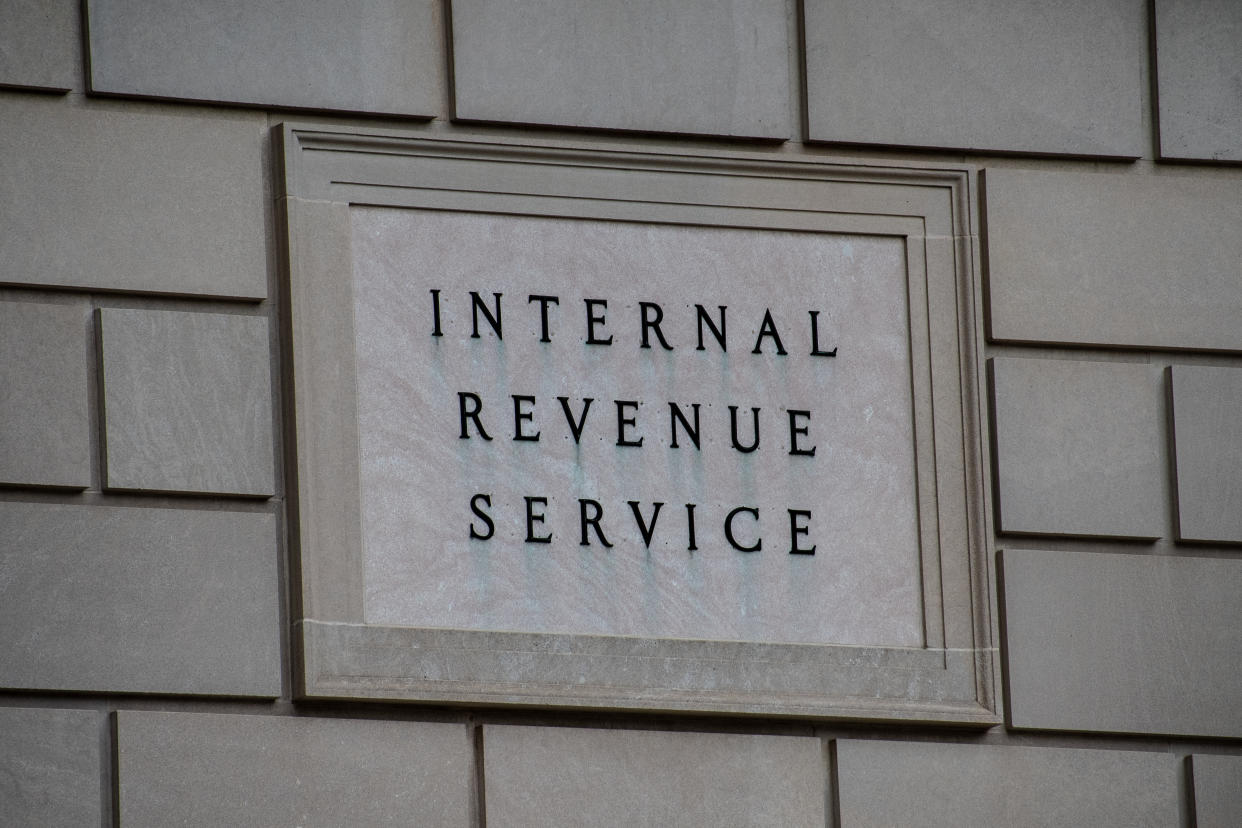Tax expert: Don't 'push it,' get a tax extension instead — here's how
With the tax deadline here, one tax expert reminded taxpayers that it's not hard to file for an extension for their federal tax return if they need more time.
“If you have questions on your return, get an extension and get it right the first time,” Larry Gray, a CPA and the government relations liaison for the National Association of Tax Professionals, told Yahoo Finance Live (video above). “We get to this 23rd hour and people try to push it.”
An extension automatically provides taxpayers with six more months — until Oct. 16 this year — to file their federal tax return, the Internal Revenue Service reminded folks on Monday.
"One of the easiest ways to get an extension is by using the IRS Free File program," the agency said.
Last year, 19 million taxpayers requested an extension to file. While the U.S. tax system offers a reasonably straightforward extension request process, some common misconceptions about extensions could subject you to penalties and interest if not handled correctly.
Here what you need to know about tax-filing extensions.

Extension to file does not give you an extension to make a payment
The biggest misconception about tax extensions is that it gives you extra time to pay taxes that are due. But an extension only provides six additional months to submit your return — any tax liability is due on tax day.
"I run across this a lot with new clients who haven't had an extension before, so it's all a brand new concept to them," Grant Dougherty, an enrolled agent and founder of Dougherty Tax Solutions, told Yahoo Finance about the common mix-up.
The concept may confuse filers because they may not know the amount of taxes due before filling out their full return, which isn’t due for another six months after filing for an extension. But the IRS charges penalties and interest for any underpayment outstanding after the regular tax due date, which falls on April 18, 2023, for this season.
"Taxpayers who owe taxes should pay their entire obligation, or as much as they can, by the normal deadline to avoid penalties and interest," the IRS said.
Dougherty also suggests filers estimate their total income and expenses, so they can get an estimate of how much they may owe.
One extension exception this year: The IRS has automatically extended both the filing and payment date for Americans living in certain disaster areas.
The tax agency often automatically gives extra time — ranging between one and six months, depending on the area and the disaster — for individuals affected by severe natural disasters. The aim of that extension is to provide financial relief for impacted Americans.
The IRS provides this year’s locations and new deadlines on its website.
Extensions are not hard nor expensive to file

There are three ways to request an extension — through the IRS website, using tax prep software, or by paper filing — and most can be done for free.
The IRS partners with different companies — such as TaxSlayer, TaxAct, and FreeTaxUSA — to provide free extension filing services for everyone, regardless of income.
You can also use your tax software to file extensions electronically. The software will guide you through the entire process. You may have to pay for your tax software's regular services, but most include an extension service at no extra charge.
If you have a tax payment due, you can still file an extension by making the outstanding payment electronically through Direct Pay or by credit or debit card on the IRS-partner software or your tax prep software.
"There’s no need to file a separate Form 4868 extension request when making an electronic payment and indicating it’s for an extension," according to the agency. "The IRS will automatically count it as an extension."
You can also file an extension the old-fashioned way by mailing in Form 4868, Application for Automatic Extension of Time to File U.S. Individual Income Tax Returns. You need to enclose a check or money order if taxes are due and postmark the entire ensemble by this year's deadline, April 18, 2023.
A federal extension does not necessarily grant a state extension

Not all states recognize federal extensions. Taxpayers must file a separate extension specific to their state if it doesn’t recognize federal extensions.
For instance, residents of New York would need to file a separate extension for an extra six months to file a state return, because the state doesn’t follow the federal extension process. The administrative distinction means that New Yorkers who only submit a federal extension to the IRS and send their federal and state returns after the April 18 deadline are considered on time with the IRS, but late with the New York Department of Revenue.
Still, many states piggyback on the federal extension, which allows residents to file just the federal extension to get both one for their state and federal taxes. The best place to check whether your state follows the federal extension is on your state's official department of revenue website.
But even if you live in a state that doesn't require an additional extension, you must still pay any outstanding state taxes by the regular due date. Like federal payments, an extension to file is not an extension to pay your taxes.
Rebecca is a reporter for Yahoo Finance and previously worked as an investment tax certified public accountant (CPA).
Read the latest financial and business news from Yahoo Finance
